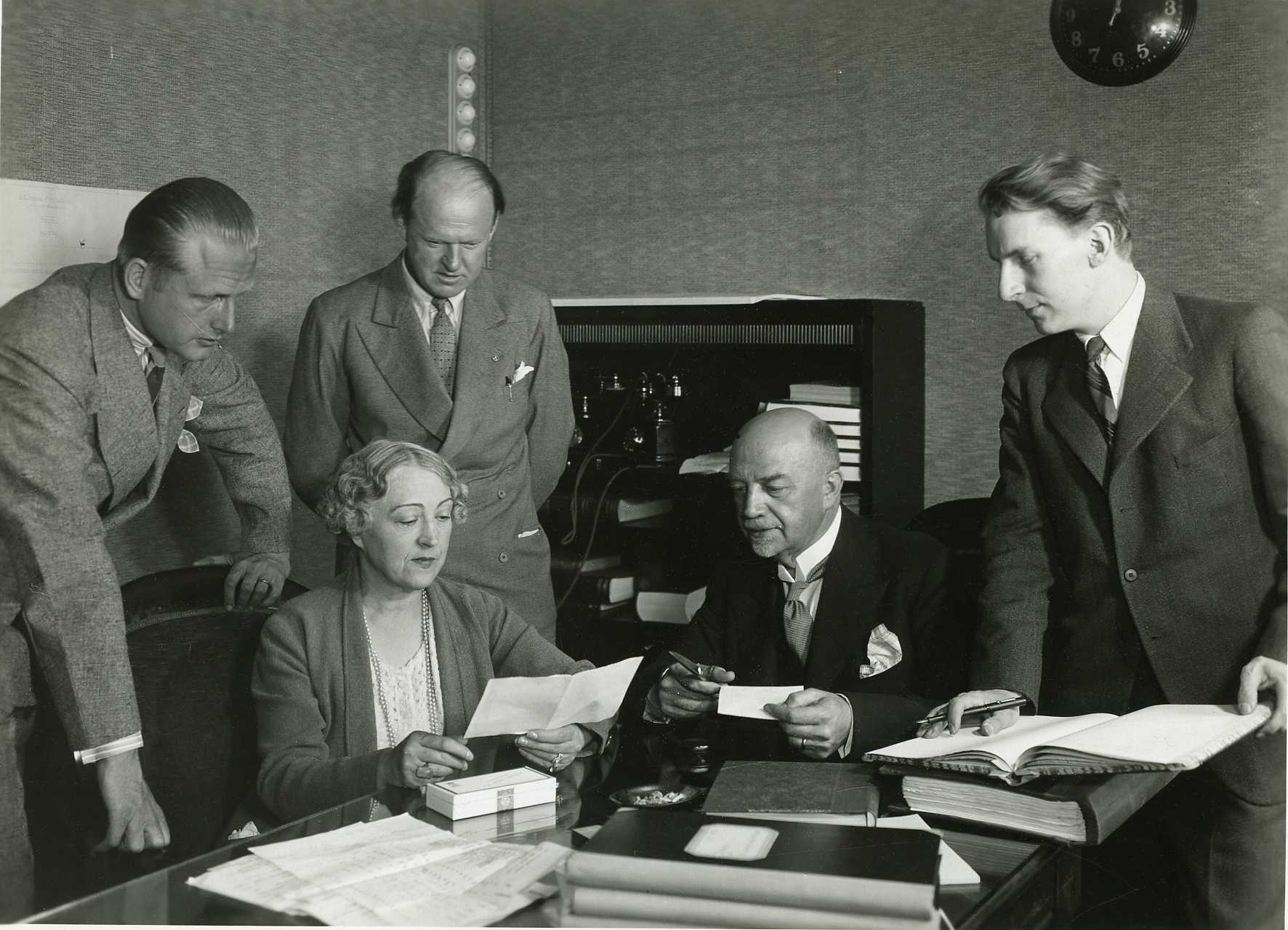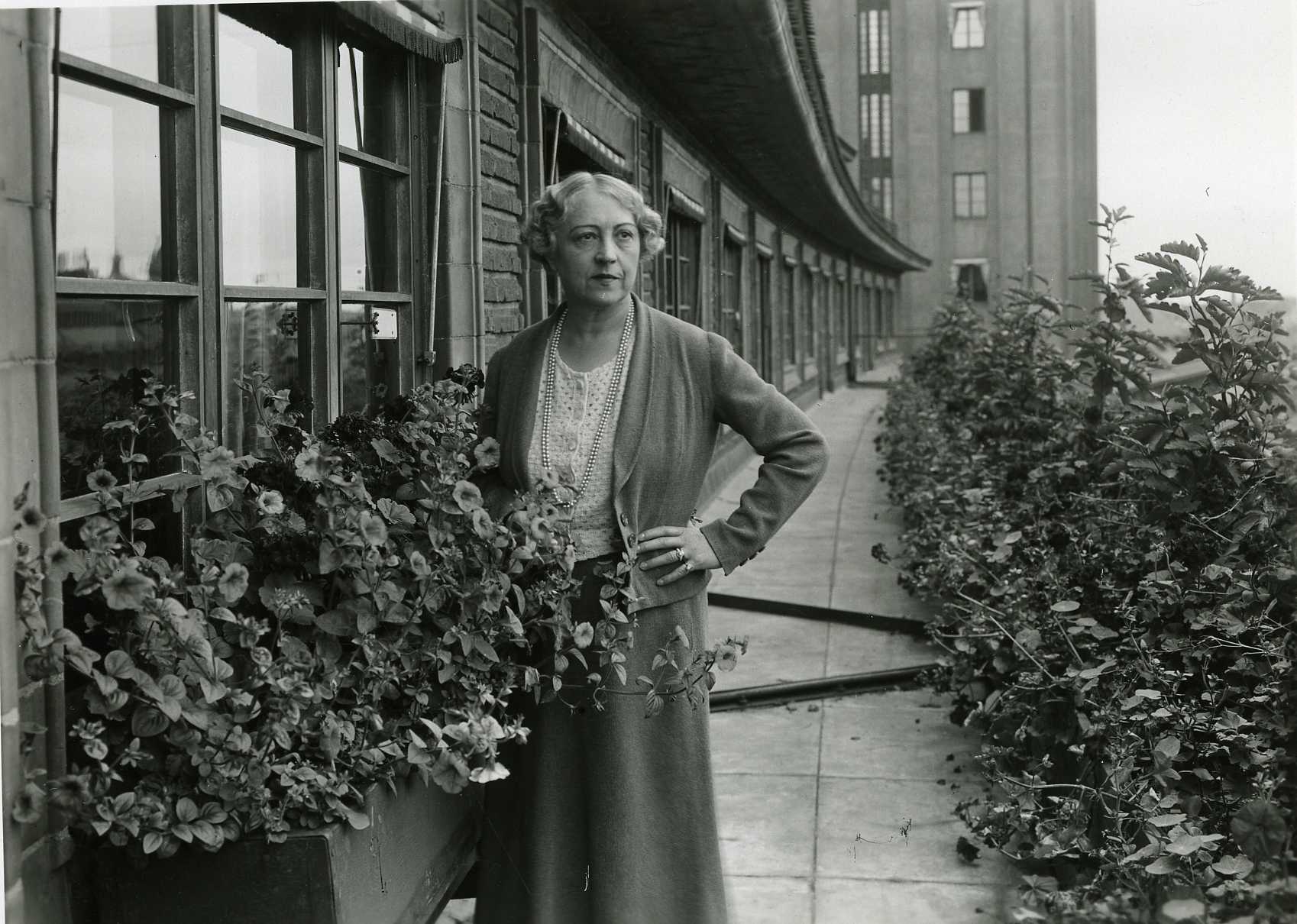Marika Stiernstedt came from a hereditary aristocratic background – her parents were the baron and general Wilhelm Stiernstedt and the Polish countess Marie Pauline Victoria Ciechanowiecka – but she turned against these female ideals of her upbringing environment. Instead, she praised middle-class women who were given the choice of a proper education and thus accomplish something of weight. Despite her upbringing, Stiernstedt was a social democrat and during the Second World War she became a convinced anti-fascist and communist, aspects that came to characterize her writing. Stiernstedt was a political writer who, together with the Social Democratic Party leader and Swedish Prime Minister Hjalmar Branting, was among the first to draw attention to the Armenian genocide in the Ottoman Empire in Europe. In the book “Armeniernas fruktansvärda läge” (“The Terrible Situation of the Armenians”, 1917), she writes about the genocide.
In 1900, she married the aviation baron Carl Cederström, and with him she had the daughter Lena Cederström, who became a talented actress at the Royal Dramatic Theatre in Stockholm. However, the marriage was short-lived, and in 1909 she remarried to the author Ludvig “Lubbe” Nordström. This marriage also ended in divorce, and is described in the book “Kring ett äktenskap” (“Around a Marriage”, 1953).
Marika Stiernstedt wrote almost twenty novels and was a well-known author and for a time also chairman of the Swedish Writers’ Association. She debuted in 1894 but first made her breakthrough with “Ullabella” (1922), a groundbreaking portrait of a young, motherless girl. Stiernstedt deals with the relationship between the genders and the new woman, the complications surrounding erotic emancipation and the attitudes of double standard of the bourgeoisie in her writing, skilfully depicted in novels such as “Miss Liwin” (1925), about the female rights woman whose life turns upside down after she has left her child.
In 1917 she received the Society De Nio’s grand prize with the prize money of SEK 2,000 and was elected the following year as a member of the same society. Stiernstedt was chairman of the Swedish Writers’ Union 1931-36 and 1940-43.
Stiernstedt wrote the script for the Victor Sjöström film Landshövdingens döttrar (”The Governor’s Daughters”, 1915), a free adaptation of her novels “Landshövdingens dotter” (“The Governor’s Daughter”, 1911) and “Daniela Herz” (1912) and it may be worth noting that this script, entitled ”Tvillingsystrarna” (“The Twin Sisters”) is listed as No. 1 in the list of “purchased manuscripts” that was kept at Svenska Bio from 1913 to April 1918 with Selma Lagerlöf’s “Ingmarssönerna” listed as No. 218. Stiernstedt received SEK 300 for this script and is thus one of the first Swedish female authors to have a film script optioned. The first one was Elin Wägner, as early as in 1911.
KN (2016)
(translated by Jan Lumholdt, 2021)
Basic info
Main professions: Author, Screenwriter
Born: 1875
Died: 1954
Active: 1912-1947
Filmography
Manus:
Landshövdingens döttrar (1915)
Dialog:
Man glömmer ingenting (1942)
Litterär förlaga till film:
Landshövdingens dotter (1911) och Daniela Herz (1912) filmatiserades som Landshövdingens döttrar (regi: Victor Sjöström, 1915)
Attentat i Paris (1942) filmatiserades som Den osynliga muren (regi: Gustaf Molander, 1944)
Banketten (1947) filmatiserades som Banketten (regi: Hasse Ekman, 1948)
Published works
Elise (novell, 1897)
Guldnålen (skiss, 1897)
Det första hjärtat (1909)
Lilas äktenskap (1910)
Landshövdingens dotter (1911. Filmatiserades 1915 som Landshövdingens döttrar)
Daniela Herz (1912. Filmatiserades 1915 som Landshövdingens döttrar)
Alma Wittfogels rykte (1913)
Janinas hjärta (1913)
Frankrikes själ (1916)
Armeniernas fruktansvärda läge (1917)
En officershistoria och några andra berättelser (1917)
Världen och stjärnorna (1920)
Ullabella (1922)
Von Sneckenströms (1924)
Fröken Liwin (1925)
Resning i målet (1927)
Mitt och de mina (1928)
Hos hög och låg i Marocko (1929)
Daniel Herz (1930)
Adjö min gröna ungdom (1930)
De fyra marskalkstavarna (1933)
Ryskt (1935)
Spegling i en skärva (1936)
Allvar i Frankrike (1939)
Man glömmer ingenting (1940)
Attentat i Paris (1942. Filmatiserades 1944 som Den osynliga muren)
Indiansommar 39 (1944)
Polsk Revolution (1946)
Banketten (1947. Filmatiserades 1948 som Banketten)
Mest sanning (1948)
Kring ett äktenskap (1953)
Bland människor (1954)

